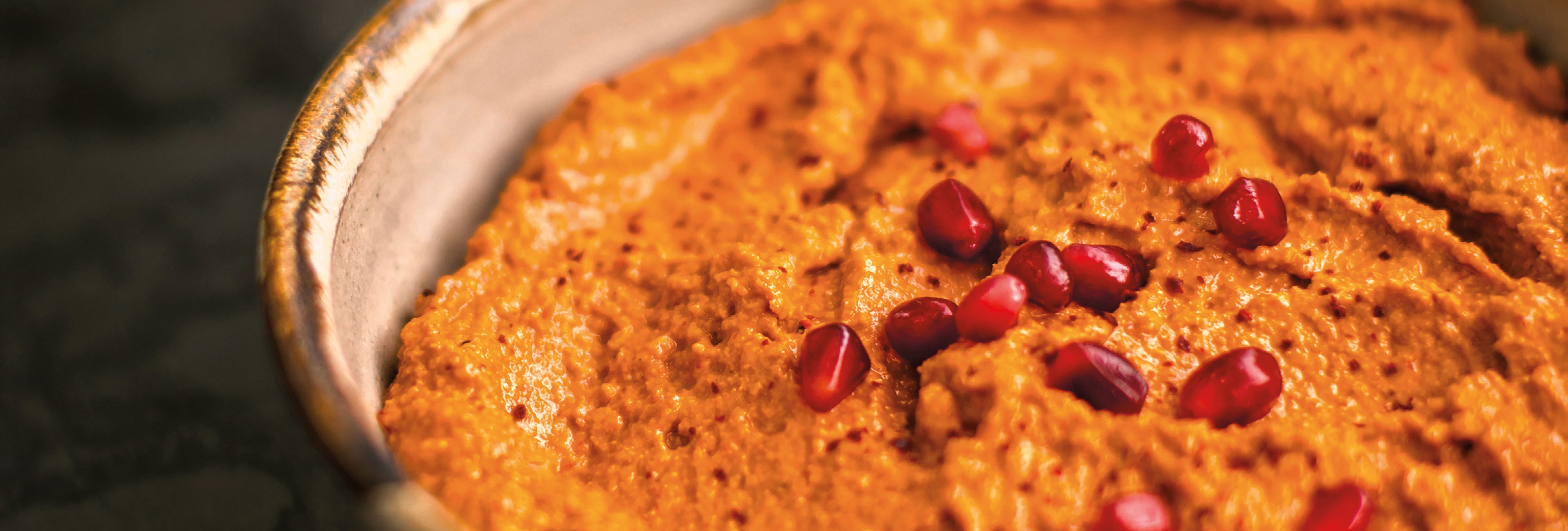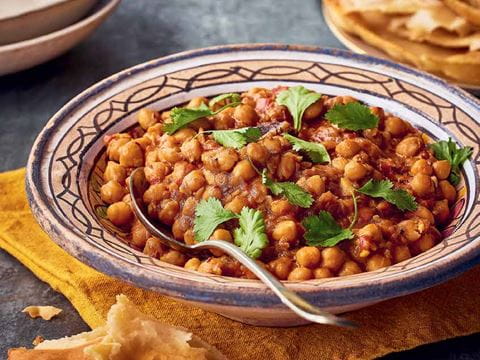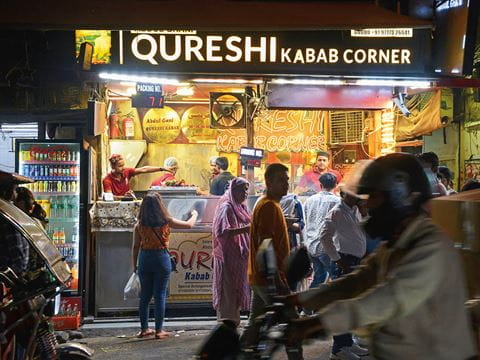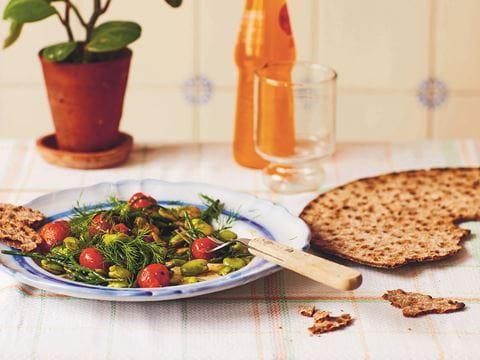
2021 Calendar: Flavors
Cooking at home: Many of us are doing more of it than ever. Stories and recipes selected from our own regular “Flavors” section show just how delicious 12 months of discovery can be.
The experience of food, and its preparation, is our common cultural touchstone.
My grandmother picking through lentils to remove stones. The tinkling jangle of her bracelets as she stirred the pot. The waft of cumin down the hallway as she opened her door to greet us. These are some of my earliest memories as a child. If you ask almost anyone for their memories of childhood, it won’t be long before they mention food.
This has led me to chefs and food writers from cultures often underrepresented in culinary landscapes. As a cookbook editor, I aim to bring new dishes to the literary table, serving up stories that make that table richer, more meaningful, more colorful, more nourishing—and more fun.
In this I got a head start from my parents. When I was 4 years old, my father, the son of Palestinian refugees, and my mother, both recently arrived in the us, founded Interlink Publishing. They instilled in me a certainty that culture—particularly literature, art, music, history and food—is the most effective instrument I have to both honor my heritage and, just as important, build connections within my country.
So, I have been thrilled to help AramcoWorld since 2018 highlight recipes and stories of the Arab and Islamic world through its “Flavors” section, selecting from some of the dozens of cookbooks I have had the pleasure of editing. We began with recipes from The Immigrant Cookbook: Recipes that Make America Great (2018), which celebrates the innovation of chefs from around the world within a food industry that relies on immigrants for its workforce as much as it does for new ideas. Like their creators, this book’s recipes are vibrant, varied and resilient, as regional flavors mingle with local ones and adapt to tell a story as old as its first ingredients and as new as the person who makes the recipe next—maybe you.
We also have chosen several from Joudie Kalla’s Baladi Palestine: A Celebration of Food From Land and Sea (2019), her ode to family, food traditions and homeland. Until very recently, it was one of a handful of Palestinian cookbooks available globally. From the other side of the Mediterranean, Fiona Dunlop’s Andaluz: A Food Journey Through Southern Spain (2019) is her food journey through southern Spain, a travelog of Andalusian chefs who trace Moorish influences on cuisines as vibrant and varied as the land itself, each one an entry in a ledger of cross-cultural exchange that has been going on for 14 centuries.
Through taste, smell, touch and as an endless subject of conversation, food is one of the most powerful agents of intercultural appreciation. Food gives us common ground. Even as the chefs featured here reflect diverse training and cuisines, each of their recipes is rooted in traditions, homelands and childhood memories. Their recipes express who they are. They cook and write to honor, remember, share and preserve traditions and ideas for future generations. Reading their stories side by side, you will find strands of experiences that exemplify the bonds between community and food the world over. In preparing their dishes and learning about these experiences, you can cultivate connections to other people and places. You invite them into your home, and they join your routines and traditions, which become richer for their presence, however brief.
Practically, this series of recipes—chosen for appeal to both novice and experienced cooks alike—is doubly timely. The global pandemic and shaky economy are inspiring renewed considerations of what is often romanticized as a more “traditional” approach to food: adapting dishes to available ingredients; cooking from scratch; resourcefully limiting food waste; and, most of all, cooking and eating at home. With this comes a deepening awareness of our roles and impacts—starting with the food we purchase, unwrap, peel, slice, chop, fry, boil, bake, serve and, finally, tell stories about. And it’s these stories that keep traditions alive, told now amid sweeping reassessments of how food is reported in books, magazines and online, and who is (and who is not) given a platform to represent it.
Like opening a book—or turning the page of a calendar to a new month—sharing a meal is a beginning. I welcome you to start sampling these delicious recipes.
To request a free 9”x12” wall calendar, email [email protected], subject line “Calendar”. Be sure to include your full, correct postal mailing address. Calendars are available while our supply lasts. Requests from the USA will be sent by first class mail; all other requests will be sent by airmail. Multiple copy requests (i.e., for a group of classrooms, etc.): Tell us how you plan to use them, and we will be pleased to send them to you, as long as our supply holds out.
You may also be interested in...

Recipe: Chickpeas for Breakfast: Try Punjabi Chole Masala Recipe
Food
Chole masala is a popular breakfast dish of chickpeas.
From Sultan’s Kitchen to Delhi’s Streets: Ni‘matnāma Lives On
Food
A sultan’s 500-year-old cookbook still ripples across South Asia, from kitchens to street stalls to celebratory tables, preserving centuries of technique and taste.
Simple Summer Salad Recipe by Sally Butcher
Food
This recipe serves up one of London-based food writer Sally Butcher's favorite lunches—a perfect mezze dish of beans.
